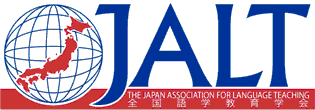19 June, 2021 - Stephen Case, Andrew Gallacher
Game Based Learning
Stephen Case, Andrew Gallacher
In today's presentation Andrew and Stephen showed us how they successfully developed and implemented a task-based English education curriculum requiring students to design and make their own games.
To start their presentation they provided some context about their students and their teaching goals. The students were all undergraduate education majors who will one day be working as educators in various subjects at elementary and secondary schools in Japan. By the end of the course Stephen stated that they should be able to produce a fully working game in a subject of their choice. Additionally they should also provide comprehensive lesson plans, rules and associated materials.
Stephen then outlined the methodology used to achieve these learning outcomes.
They first introduced a couple of games to trigger awareness of characteristics and mechanics since the more they are exposed to different varieties of games, the better they will be at creating their own original game later on.
During the semester they then concentrated on understanding and practicing one game at a time. Each game usually takes about 3 weeks and involves the following steps: First, students receive a learning feedback worksheet and a game. Then they then practice it in Japanese as homework. Afterwards he has them practice the game in English. The final step involves filling out the feedback worksheet.
Stephen and Andrew discovered a number of interesting results from their lessons. They found teaching games that do not require binary knowledge (either you know the answer or not) was a good confidence building tool as such games are more inclusive of less skilled players.
Student motivation and output was often very high however there were still some that did the minimum work. Such students would simply doing carbon copies of a game and adapt it to their topic. The highly motivated students on the other hand would surprise them by coming up with highly original games with interesting game mechanics.
As a part of their action research they conducted entry and exit surveys. Their surveys tracked their knowledge of gaming and if they thought it was a useful teaching tool. Preliminary data suggests a significant positive change in attitude over time.
They also found that students work best in pairs so that there is always negotiation and mutual support.
In conclusion they stated that this project might not always engage with all students all the time, but they felt it was nonetheless helpful with most of them. This was because they felt the activity was worthwhile at helping improve their students' ability to plan and explain concepts better, thus supporting their future teaching careers.
Link to meeting listing

